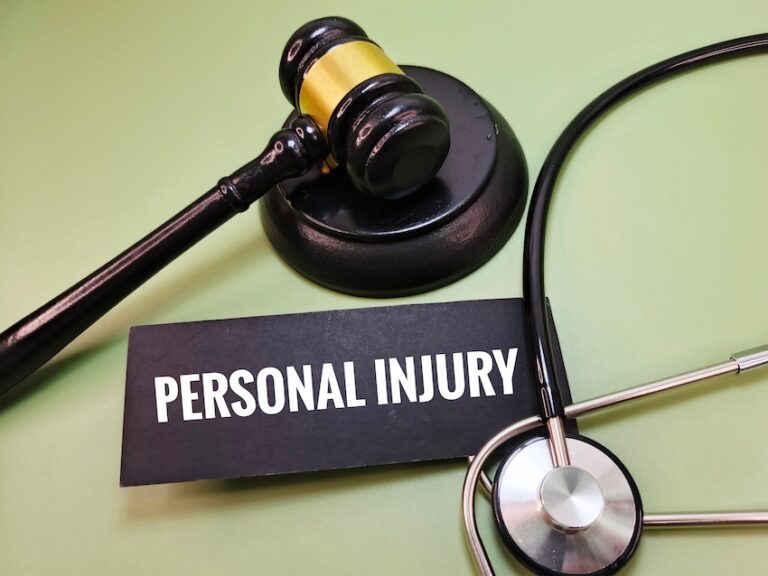At Ross Moore Law, we are dedicated to providing experienced legal representation to individuals facing the challenges of medical bills and financial strain following a Georgia car accident. Our team offers personalized attention, guiding you through the complexities of insurance claims and medical debt resolution. With a proven track record of securing favorable outcomes for our clients, we are committed to helping you achieve the compensation you deserve.
After a car accident in Georgia, the financial burden of medical bills can quickly add up. Whether you are facing hospital costs, prescription fees, or long-term recovery expenses, understanding who is responsible for paying these bills is crucial. In Georgia, the process of covering medical expenses after a crash can be complex, depending on insurance, fault, and available coverage.
In this blog, we’ll explain who is responsible for paying your medical bills after a Georgia car accident, how different types of insurance coverage apply, and why working with an experienced Atlanta car accident lawyer can help ensure you get the compensation you deserve.
Immediate Medical Care: Who Pays First?
After a car accident in Georgia, medical bills begin to add up quickly. Understanding who pays for emergency care helps avoid confusion and reduces financial stress.
Emergency Treatment Comes First
Hospitals and emergency responders do not wait for insurance information. If you are injured in a crash, medical services are provided immediately. This includes ambulance transport, hospital stays, diagnostic testing, surgeries, and prescription drugs. These services are billed directly to the injured person, regardless of fault.
Health Insurance Pays First, If Available
If you have health insurance coverage, it usually pays your medical bills initially. This includes private insurance, Medicare, or Medicaid. However, you may still owe deductibles, copayments, and non-covered services. These costs can become significant without additional support or reimbursement from the at-fault party’s insurance.
Under Georgia Code § 33-24-56.1, health insurance companies must pay for covered medical services promptly. But they may later seek reimbursement if you receive a settlement from the other driver’s insurer.
No Insurance Means You Pay or Delay Payment
If you do not have health insurance, you are still responsible for the cost of care. Some providers may offer payment plans or delay billing through a letter of protection. This is a legal agreement between your attorney and your medical provider, allowing you to receive care now and pay later after a settlement.
The At-Fault Driver’s Insurance Does Not Pay Immediately
Georgia is an at-fault state. The person who caused the crash is responsible for the damage. However, the at-fault driver’s insurance does not pay your hospital bills right away. Payment only comes after a claim is settled or a court judgment is issued. This delay often forces injured people to pay upfront or rely on their own insurance.
Optional MedPay Coverage Can Help
Medical Payments (MedPay) coverage is optional in Georgia auto insurance policies. If you purchased MedPay, it pays for medical bills regardless of fault. It can cover out-of-pocket costs like deductibles or ambulance fees. MedPay pays quickly and directly to providers or to you.
Health Insurance Coverage vs. Auto Insurance: Primary vs. Secondary Payers
After a Georgia car accident, knowing who pays your medical bills helps you avoid debt and delays in care.
Health Insurance Is Usually the First to Pay
If you have health insurance coverage, it typically pays first. This includes private insurance, Medicare, or Medicaid. These plans cover hospital stays, prescriptions, and follow-up care. You are still responsible for deductibles, copays, and services your plan does not cover.
Auto Insurance Helps Cover Gaps
Auto insurance can cover what health insurance does not. If you have Medical Payments (MedPay) coverage, it pays for medical bills up to your policy limit. MedPay applies regardless of who caused the crash and can help with out-of-pocket costs like ambulance fees or prescriptions.
Georgia Law Places Fault First
Georgia follows a fault-based system under Georgia Code § 51-1-6. This means the person who caused the crash is responsible for the cost of injuries. But their insurance does not pay your bills right away. You must wait until your claim is settled or a court makes a decision.
Health Insurance Prevents Payment Delays
Relying only on the other driver’s insurance can leave you with unpaid bills. Using health insurance first ensures your treatment continues without delay. After a settlement, your health insurer may seek repayment, but this process happens later and does not stop your care.
What If the At-Fault Driver Is Uninsured or Underinsured?
When the driver who caused the crash has little or no insurance, paying your medical bills becomes more difficult and often more expensive.
Uninsured Drivers Are Still Legally Liable
In Georgia, all drivers must carry liability insurance. But some ignore this law or let their coverage lapse. If an uninsured driver causes a crash, they are still responsible for your medical bills and other losses. However, without insurance, they may not have the money to pay you.
Underinsured Drivers May Not Cover All Costs
Some drivers carry only the minimum required insurance. This may not be enough to cover serious injuries, especially in a crash involving multiple people or high hospital bills. Once their policy limit is reached, you must look elsewhere for help paying what is still owed.
UM and UIM Coverage Can Protect You
Georgia drivers can buy Uninsured and Underinsured Motorist (UM/UIM) coverage. This protects you if the at-fault driver cannot pay. UM/UIM can pay for your hospital care, prescriptions, and lost income. It helps avoid medical debt when the other driver’s insurance is not enough. Georgia Code § 33-7-11 explains how UM/UIM coverage applies and what insurers must offer.
A Lawsuit May Not Recover Full Payment
You can sue an uninsured or underinsured driver. But if they have no income, property, or assets, collecting money is unlikely. This is why UM/UIM coverage is one of the most important parts of your auto insurance policy. It pays when others cannot.
The Role of Letters of Protection and Medical Liens
When medical bills cannot be paid right away, some providers use legal tools to secure payment after a car accident claim is resolved.
What Is a Letter of Protection
A letter of protection is a written agreement between your attorney and a medical provider. It promises that your medical bills will be paid from any future settlement or court award. This allows you to receive treatment now without using insurance or paying upfront. Providers accept the risk in exchange for the chance to be paid later.
Medical Liens Secure a Provider’s Right to Payment
If no payment is made, a hospital or doctor may file a medical lien. A lien gives them a legal claim against your settlement. Under Georgia Code § 44-14-470, providers can recover the cost of care directly from your case. They must follow specific steps to file and notify you.
How Liens Affect Your Final Payout
Liens reduce the amount of money you receive from a settlement. After legal fees and lien payments, you may have less money than expected. This is why it is important to track all medical bills and review liens with your lawyer before finalizing a claim.
Negotiation Can Lower the Amount Owed
Medical liens can often be negotiated. Some providers agree to accept less than the full amount to speed up payment or ensure collection. Your attorney can help reduce liens so more of your settlement stays with you. This helps manage debt and protect your financial recovery.
Real Cost of Injury: Beyond Just the Hospital Bills
Medical bills after a Georgia car accident include more than emergency care and hospital stays. Many costs continue long after the crash.
Ongoing Treatment and Prescription Drugs
Recovery often requires follow-up visits, physical therapy, and prescription drugs. These services are not always covered fully by insurance. If you need long-term care, the cost can rise quickly. This adds pressure to families already facing lost income and daily expenses.
Lost Income and Family Responsibilities
Injuries from a crash can prevent a person from working for weeks or months. Some people may never return to work. Lost income affects the entire family. Parents may need help caring for children. Bills keep coming even if paychecks stop. This can lead to growing debt and financial strain.
Transportation and Support Costs
Serious injuries often require special transportation, rental cars, or support equipment. These costs are not always included in a settlement. You may also have to pay for childcare or help at home during recovery. These needs add to the overall cost of injury.
Mental and Emotional Impact
Car accidents affect more than the body. Many people suffer anxiety, depression, or post-traumatic stress. These mental health issues may require counseling or medication. Without proper care, emotional injuries can affect relationships, work, and daily life.
A Case That Shows the Real Impact
In a crash reported by the Associated Press, a vehicle headed southbound in coastal Georgia burst into flames. Five people were killed, including four children. Stories like this show how much families lose in a deadly car accident. The cost is measured not just in money, but in lives changed forever.
Contact an Experienced Atlanta Car Accident Attorney ASAP!
If you’ve been involved in a car accident in Georgia and are struggling with medical bills, our team at Ross Moore Law is here to help. We have the experience and knowledge to navigate the complexities of your case and fight for the compensation you deserve.
Contact us at 404-445-8122 for a free case consultation today!





